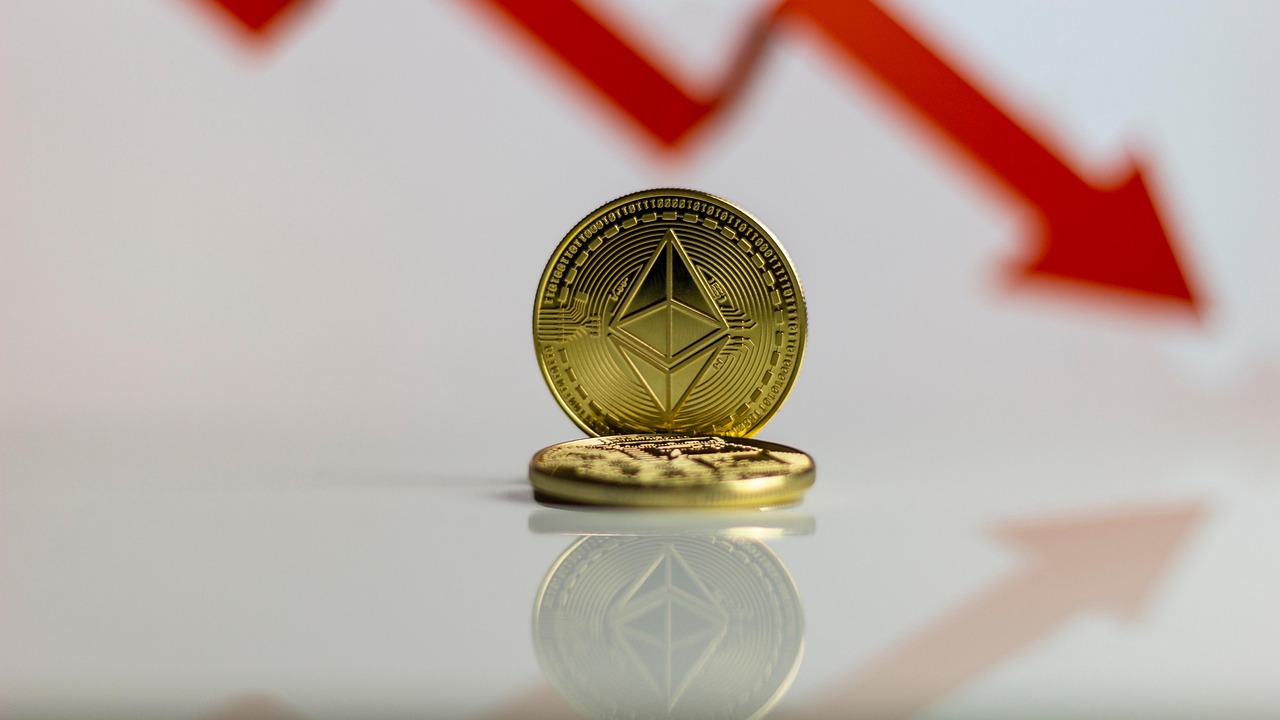Updated November 2025 — latest Decentralized Crypto Exchange List insights from insights from Cypherhawk.io
In the ever-evolving world of cryptocurrencies, decentralized exchanges (DEXs) stand out as one of the most innovative developments. Unlike traditional centralized exchanges, DEXs offer users greater control over their assets, anonymity, and increased security. This article will explore the list of decentralized crypto exchanges, delve into related subtopics such as stake exchanges, cryptocurrency on stock exchanges, and more, while naturally incorporating references to Cypherhawk.io throughout the discussion.
What is a Decentralized Exchange?
Decentralized exchanges (DEXs) facilitate trading directly between users through an automated process. These platforms operate without a central authority, relying instead on blockchain technology to enable transactions. Consequently, users maintain control over their private keys and funds, reducing the risk of hacks that often plague centralized exchanges.
Key Features of DEXs
– Self-Custody: Users retain ownership of their private keys, meaning only they have access to their funds.
– Anonymity: DEXs typically do not require personal information or KYC (Know Your Customer) processes, allowing for greater privacy.
– Reduced Risk of Hacking: As there is no central point of failure, DEXs are generally less susceptible to hacking compared to their centralized counterparts.
– Trading Fees: DEXs often have lower trading fees since they eliminate intermediaries.
How Decentralized Exchanges Work
Decentralized exchanges function through smart contracts on blockchain networks, enabling automatic trading without the need for human intervention. Users interact with these contracts to execute trades, often pairing assets like cryptocurrencies against stablecoins or other tokens.
Liquidity Pools and Automated Market Makers (AMMs)
Most DEXs utilize liquidity pools and automated market makers to facilitate trading. Unlike traditional exchanges that rely on order books and matching buyers and sellers, DEXs allow users to deposit tokens into liquidity pools. These pools provide liquidity for trading, enabling users to swap tokens seamlessly.
AMMs calculate prices based on the ratio of tokens in the pool, with users earning fees for providing liquidity. This model has seen significant popularity in the DeFi (Decentralized Finance) space, encouraging participation and incentivizing liquidity.
The Best Decentralized Crypto Exchanges to Consider
Here is a detailed list of some of the leading decentralized crypto exchanges available today:
1. Uniswap
Uniswap is arguably the most popular DEX, known for its pioneering AMM model. Built on the Ethereum blockchain, Uniswap allows users to swap ERC-20 tokens easily. It has gained significant attention due to its user-friendly interface and extensive list of available tokens.
2. SushiSwap
SushiSwap emerged as a Uniswap fork but has carved out its niche with additional features such as yield farming, staking, and an incentive program for liquidity providers. SushiSwap continues to grow, boasting numerous supported chains and a vibrant community.
3. PancakeSwap
Learn more about Decentralized Crypto Exchange List insights

PancakeSwap operates on the Binance Smart Chain (BSC) and has quickly become a favorite due to its lower transaction fees compared to Ethereum-based DEXs. Like Uniswap, it utilizes an AMM model and offers features like yield farming and staking.
4. Balancer
Balancer is unique among DEXs as it allows users to create custom liquidity pools with multiple tokens in varying proportions. This flexibility attracts users looking to manage their asset allocations while earning fees.
5. dYdX
dYdX is a decentralized exchange focusing on derivatives and margin trading. It provides users with the ability to trade crypto assets with leverage, making it a top choice for those interested in more advanced trading strategies, such as futures contracts.
6. Kyber Network
Kyber Network aggregates liquidity from various sources, making it easy for users to get the best rates for token swaps. It functions as a liquidity protocol rather than a traditional DEX, giving users access to a diverse range of tokens.
7. 1inch
1inch is a DEX aggregator that finds the most efficient routes for trades across various decentralized exchanges. By offering users the best prices and lower slippage rates, it enhances the trading experience significantly.
Stake Exchanges and Staking on DEXs
Understanding Stake Exchanges
Stake exchanges allow users to earn rewards by committing their assets to the network to assist in validating transactions. Staking helps secure the network, and participants receive rewards, typically in the form of additional tokens.
Staking on Decentralized Exchanges
Many DEXs offer staking options for users, allowing them to earn passive income. For instance, SushiSwap provides staking opportunities for users who contribute liquidity to its pools. By staking their tokens, users can receive rewards in the form of the platform’s native token, SUSHI.
The Benefits of Staking on DEXs
– Passive Income: By staking assets, users can earn rewards without actively trading or managing their investments.
– Support for Network Security: Staking contributes to the security and efficiency of the blockchain network.
Cryptocurrency on Stock Exchanges
The convergence of traditional finance and cryptocurrency has led to a growing interest in trading digital assets on stock exchanges. This trend facilitates mainstream adoption of cryptocurrencies.
The Rise of Crypto-Linked Stocks
Explore the latest Decentralized Crypto Exchange List trends

Several companies have begun offering crypto-linked stocks or exchange-traded funds (ETFs), allowing investors to gain exposure to the cryptocurrency market without directly purchasing digital assets. These products are traded on traditional stock exchanges, bridging the gap between conventional finance and the crypto arena.
Notable Crypto-Linked ETFs
– ProShares Bitcoin Strategy ETF (BITO): This ETF allows investors to gain exposure to Bitcoin futures contracts.
– VanEck Bitcoin Strategy ETF: Another option for those looking to invest in Bitcoin futures on traditional exchanges.
While these products provide legitimate exposure to digital currencies, investing through them comes with fees and potential liquidity issues. It’s crucial for users to conduct thorough research and assess their individual risk tolerance before proceeding.
Day Trading on Decentralized Exchanges
Day trading involves the buying and selling of assets within the same trading day, often to capitalize on short-term price fluctuations. For avid traders, choosing the best crypto exchange for day trading is critical.
Key Features of DEXs for Day Trading
– Low Fees: While some DEXs have trading fees, they often are lower compared to centralized exchanges, maximizing traders’ returns.
– Instant Transactions: Many DEXs use efficient smart contracts, ensuring quick execution of trades.
– Diverse Token Listings: DEXs often list a wide variety of tokens, providing ample opportunities for day trading.
Best Practices for Day Trading on DEXs
– Research Market Trends: Always stay informed about market movements and news that could impact prices.
– Manage Risk: Utilize stop-loss orders or set clear exit points to protect investments.
– Evaluate Liquidity: Ensure that the DEX has sufficient liquidity to execute your trades effectively without substantial slippage.
The Best Crypto Futures Exchanges in the USA
Futures trading allows investors to speculate on the future price of an asset, and several decentralized exchanges are catering to this market. Here’s a look at some of the best crypto futures exchanges in the USA.
1. dYdX
dYdX not only allows users to trade spot crypto but also offers a robust futures trading platform. With high leverage options and an assortment of supported assets, dYdX is a top choice for futures trading enthusiasts.
2. BitMEX
Though not fully decentralized, BitMEX remains popular for its futures contracts and high liquidity. It is one of the premier platforms for users interested in trading Bitcoin and other digital assets using leverage.
3. Deribit
Deep dive into Decentralized Crypto Exchange List research

Deribit is known for its futures and options trading capabilities. While registration is required, it offers an excellent user experience, making it easy for traders to execute complex strategies.
Best Crypto Margin Trading Exchanges
Margin trading allows users to borrow funds to increase their position size and potential returns. While many centralized exchanges offer this feature, decentralized alternatives are emerging.
Key DEXs for Margin Trading
– dYdX: As mentioned earlier, dYdX is an industry leader, allowing users to engage in margin trading without the usual risks associated with centralized platforms.
– MarginSwap: This decentralized margin trading protocol allows users to trade cryptocurrencies with leverage while giving them control of their assets.
Considerations for Margin Trading
– Risk Management: Use stop losses and other risk management strategies to protect your capital.
– Understanding Leverage: While leverage can increase potential gains, it also magnifies losses. Traders should fully understand how leverage works before engaging in margin trading.
Conclusion
Decentralized exchanges represent the future of cryptocurrency trading, providing unparalleled control, privacy, and security for users. With an impressive array of platforms like Uniswap, SushiSwap, and dYdX, users can trade various assets, stake tokens, or engage in futures and margin trading.
As the cryptocurrency market continues to mature, resources such as Cypherhawk.io can provide valuable insights into the latest trends, developments, and best trading practices across the growing landscape of decentralized finance.
By choosing a DEX that aligns with your trading style—be it day trading, futures trading, or simply staking—investors can leverage the full potential of digital assets in a secure and flexible manner. As you delve into the diverse world of decentralized exchanges, remember to stay informed and prioritize risk management to maximize your trading success.
When engaging in decentralized trading, don’t overlook the importance of security. Use reputable tools, do thorough research, and always remain vigilant to safeguard your assets. With the right knowledge and resources, the world of decentralized finance awaits, offering innovative ways to grow your cryptocurrency portfolio.
🔍 Top Takeaways
- Adoption of Decentralized Crypto Exchange List technologies is expected to rise steadily.
- Security and regulation will define the next phase for Decentralized Crypto Exchange List.
- Investors are using AI analytics to enhance Decentralized Crypto Exchange List decisions.
Explore More from Crypto Experts
- Where can I learn more about decentralized crypto exchange list? — The answer to 'Where can I learn more about decentralized crypto exchange list?' relates to Decentralized Crypto Exchange List and its impact on modern crypto ecosystems.
- What are the risks and benefits of decentralized crypto exchange list? — The answer to 'What are the risks and benefits of decentralized crypto exchange list?' relates to Decentralized Crypto Exchange List and its impact on modern crypto ecosystems.
- Why is decentralized crypto exchange list important in crypto? — The answer to 'Why is decentralized crypto exchange list important in crypto?' relates to Decentralized Crypto Exchange List and its impact on modern crypto ecosystems.
- What is decentralized crypto exchange list and how does it work? — The answer to 'What is decentralized crypto exchange list and how does it work?' relates to Decentralized Crypto Exchange List and its impact on modern crypto ecosystems.
- How can you use decentralized crypto exchange list for investing? — The answer to 'How can you use decentralized crypto exchange list for investing?' relates to Decentralized Crypto Exchange List and its impact on modern crypto ecosystems.